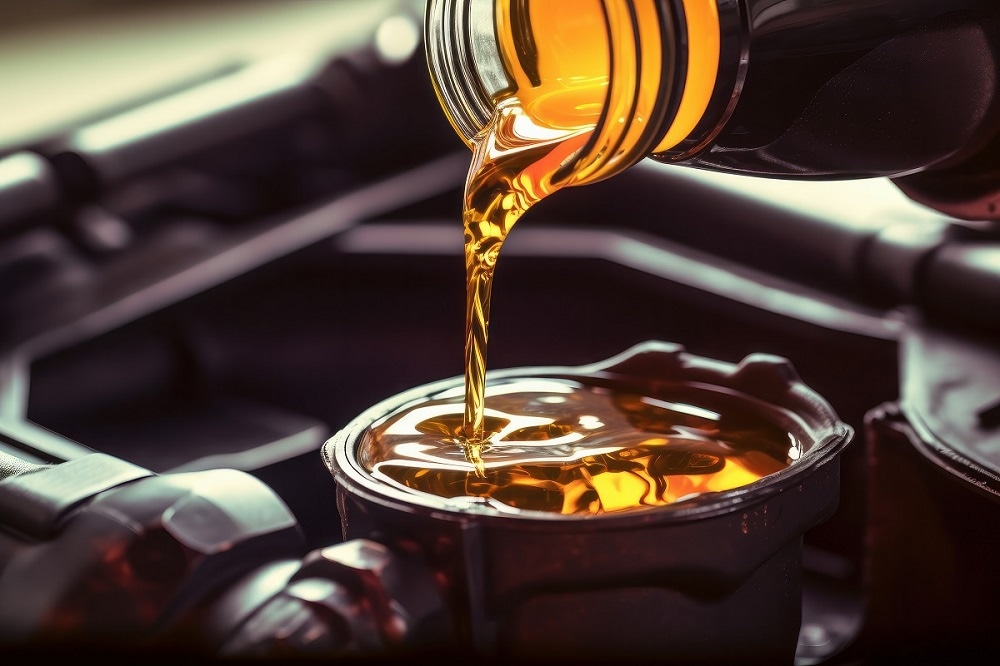 Bringing up the topic of motor oil additives in mixed company can be like bringing up politics at Thanksgiving. Some folks swear by a certain specific STP oil treatment they’ve been using on their ’98 Plymouth Acclaim for years, while others may challenge you to a duel for even thinking about an aftermarket additive for your car.
Bringing up the topic of motor oil additives in mixed company can be like bringing up politics at Thanksgiving. Some folks swear by a certain specific STP oil treatment they’ve been using on their ’98 Plymouth Acclaim for years, while others may challenge you to a duel for even thinking about an aftermarket additive for your car.
The debate gets even more heated when you start talking about putting additives in a supercar like a Bugatti Centodieci.
As with most things, the questions surrounding oil additives are a bit more nuanced than a simple yea or nay. Read on to see whether you should use additives in your luxury import car.
Are Engine Oil Additives Necessary?
The short answer: yes.
The long answer: pretty much all commercially and professionally available engine oils already contain additives—in fact, some consist of as high as 30% additive by total weight. Using the proper additives is crucial in maintaining vehicle health, and it’s almost impossible to find a totally additive-free oil because they all come straight off the production line with their own proprietary blend.
What Are Engine Oil Additives? How Do They Work?
An additive is anything added to the base stock oil or synthetic lubricant to improve engine performance.
Pure engine oil by itself has three main jobs:
- Greasing up the engine to prevent internal components from locking up
- Protecting engine components from long-term rust, corrosion, and buildup
- Helping to regulate the engine temperature
The point of including engine oil additives is to help the oil do one or all of these jobs more efficiently. It gets a bit complicated, though, when you realize not all additives are created equally. There are actually dozens of potential additives out there, but no single type of oil or additive is perfect for every situation. Some additives are intended to prolong the lifespan of older cars with higher mileage, whereas other additives are included to enhance performance in sport cars. This is why picking the correct oil for your car is so important.
Types of Engine Oil Additives
The specific additive required will depend on a few key factors, such as the vehicle’s engine, the condition of the vehicle, and the age of the vehicle. Below are a few notable types of motor oil additives.
Viscosity Modifiers
The engine oil’s viscosity is widely regarded as its most important attribute. Viscosity refers to how easily a fluid deforms under pressure—or, put more simply, its “thickness.” For example, honey has a much higher viscosity than 2% milk.
Relative viscosity is measured using the viscosity index. A higher viscosity index indicates that a fluid is more stable under changing temperatures, meaning a proper viscosity index is crucial in motor oil. If the oil is too thin, it’ll run through the engine too quickly, and therefore won’t properly coat all surfaces. Too thick, and the engine will have to work harder to push the oil through the system, creating mechanical strain.
So, viscosity index modifiers ensure that oil is properly viscous at both high and low temperatures.
Detergents and Dispersants
Somewhat like the detergents you’d use in your dishwasher or laundry machine; the purpose of these chemicals is to neutralize impurities in the oil to ensure they don’t form sludge deposits and clog the system.
Dispersants work a little differently, by suspending particles in the oil, but the goal is the same: to prevent impurities from collecting in the interior of your engine. A common example of this is Sea Foam for oil.
Corrosion Inhibitors and Antioxidants
This type of engine treatment slows or prevents the chemical reactions that naturally occur in a working motor, such as oxidization. This can effectively prevent rust.
Friction Modifiers
This category works to enhance the lubricity of the metal parts that the oil flows through and includes chemicals such as anti-wear and extreme pressure additives. They generally work by creating a film between metal components, further protecting them from making direct contact.
Other Types of Additives
There are a couple other varieties of commonly used additives, such as anti-foam agents, which reduce the formation of damaging air bubbles in the system.

Can I Use Aftermarket Oil Additives in My Bugatti?
We highly discourage it.
For many, the “best engine oil additive” debate will continue to rage on. It’s true that certain additives can be used effectively in more common makes and models, because their engines are built to accept a range of different types of oil. So, if you want to consult a mechanic about using Lucas Oil stabilizer in your standard SUV, you may actually see some benefits.
Bugatti vehicles, on the other hand, are built to the highest specification, and the engine oil used reflects that. The specification is so exacting, in fact, that simply changing the oil in a Bugatti supercar is a multi-step process that involves removing and replacing numerous components. A Bugatti oil change can take several days for even a licensed technician with years of experience to complete.
So, even if you can figure out how to put the additive in, if you use one on your Bugatti, you’ll likely be visiting one of our service centers very soon after.
Bugatti Engine Service in Miami
If your Bugatti Chiron’s performance leaves something to be desired, Braman Bugatti Miami’s luxury car service experts are ready to work with you. Schedule an appointment with us online or give us a call at (786) 577-5216 to make an appointment for an oil change or general service.